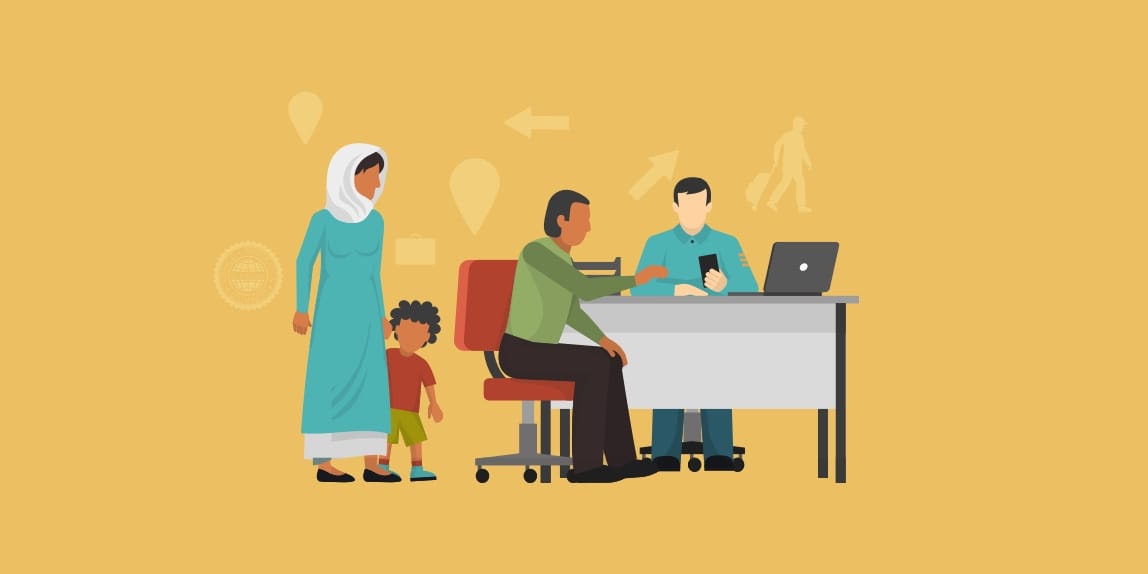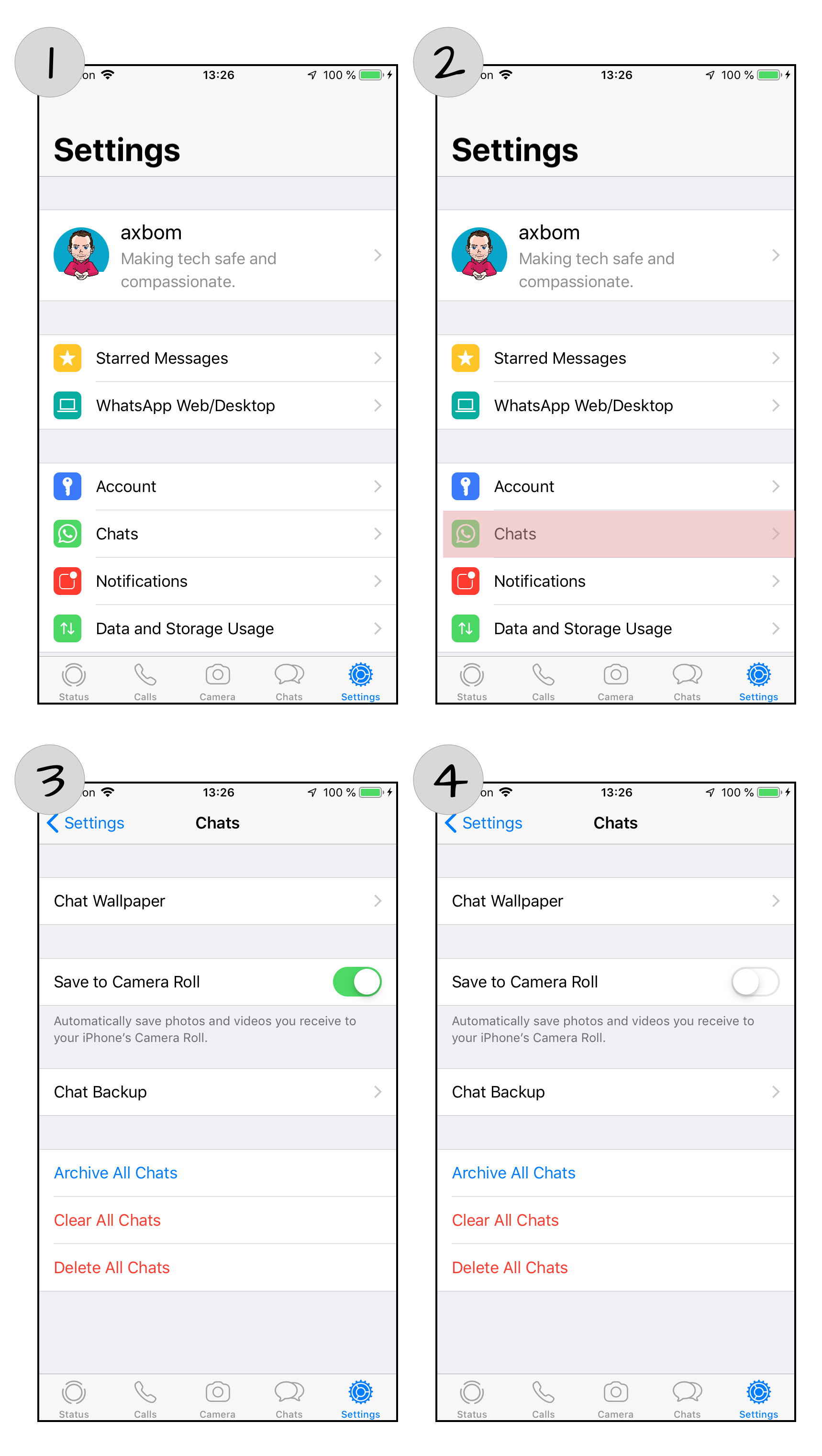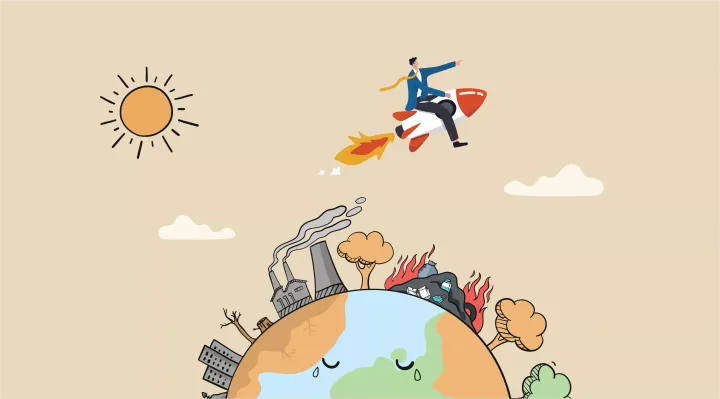Messages in WhatsApp are stopping immigrants

Information stored on phones is increasingly used in court cases and to determine the trustworthiness and honesty of people seeking to enter another country. So what happens when the source of the information is someone else entirely, and you had no intention of saving it on your phone or even awareness that it was happening?
As reported by Abed A. Ayoub, Legal and Policy Director of American-Arab Anti-Discrimination Committee (ADC), people are being denied entry to the United States due to messages sent through the WhatsApp messaging service.
At least twice a month I have clients denied entry because of something in their WhatsApp. Most of the time its pictures or videos forwarded to them in a WhatsApp Group. Many tools being used to stop immigrants from legally entering.
Here is a transcript of parts of an interview, by US Department of Homeland Security, determining right to entry. The interviewer is questioning content on the respondent’s phone.
A. It was broadcast on WhatsApp I received news and I have nothing to do with these. They came to my app.
Q. When did you receive the photos on WhatsApp?
A. I don’t know.
Q. Do you understand the concerns of the United States and its citizens when considering the graphic nature of the images on your cellphone?
A. Of course I understand no one finds the graphic pictured pleasant. It’s inhuman.
Q. Have you ever had military or weapons training anywhere in the world?
A. No.
Q. Considering the totality of this interview and the content on your cellphone. You have been found inadmissible to the United States pursuant to Section 212(a) (7) (A) (i) (I) of the Immigration and Nationality Act. You will be removed from the United States on the next available flight. Do you understand?
(source)
The complication here is that individuals can be members of discussion groups where other members post incriminating content. What responsibility does the first person then have to delete that content from their phone? One significant issue with WhatsApp specifically is the default setting of automatically downloading WhatsApp media content to the photo library on the phone. This means that anyone targeting immigrants can join a discussion group and send violent or pornographic images and films to these groups, and have those images and films stored on the recipients’ personal phones.
While such a person would likely be thrown out of the group, the damage has already been done. The content has been saved to private photo libraries, often without the recipients even considering it.
The other issue is that anyone can be added to a discussion group, and be a recipient of content, as long as the sender has access to that person’s mobile number. To be clear: I don’t even need to be part of a discussion group, someone else can add me without my permission. Access to mobile phone numbers are quickly becoming a privacy issue.
Of course there will be instances where content on a phone is valid reason to deport a person, but there is a considerable source of disarray here, including risks of maleficent targeting, that will result in many false positives. Truly understanding how the content ended up there is vital to a fair assessment.
It’s important to be aware of how services like WhatsApp work, both as a consumer and as an official. A sound recommendation is always to turn off the feature that saves videos and photos to the camera roll.
Turn off this behaviour by going to Settings » Chats and disabling the toggle next to “Save to Camera Roll”. The other option of course is to stop using WhatsApp (A Facebook service) and opting for safer alternatives.

Awareness needs to increase about the risks of jumping to conclusions about what anyone’s phone content implies. Share this story and if you have any similar experiences, do not hesitate to let me know.




Comment